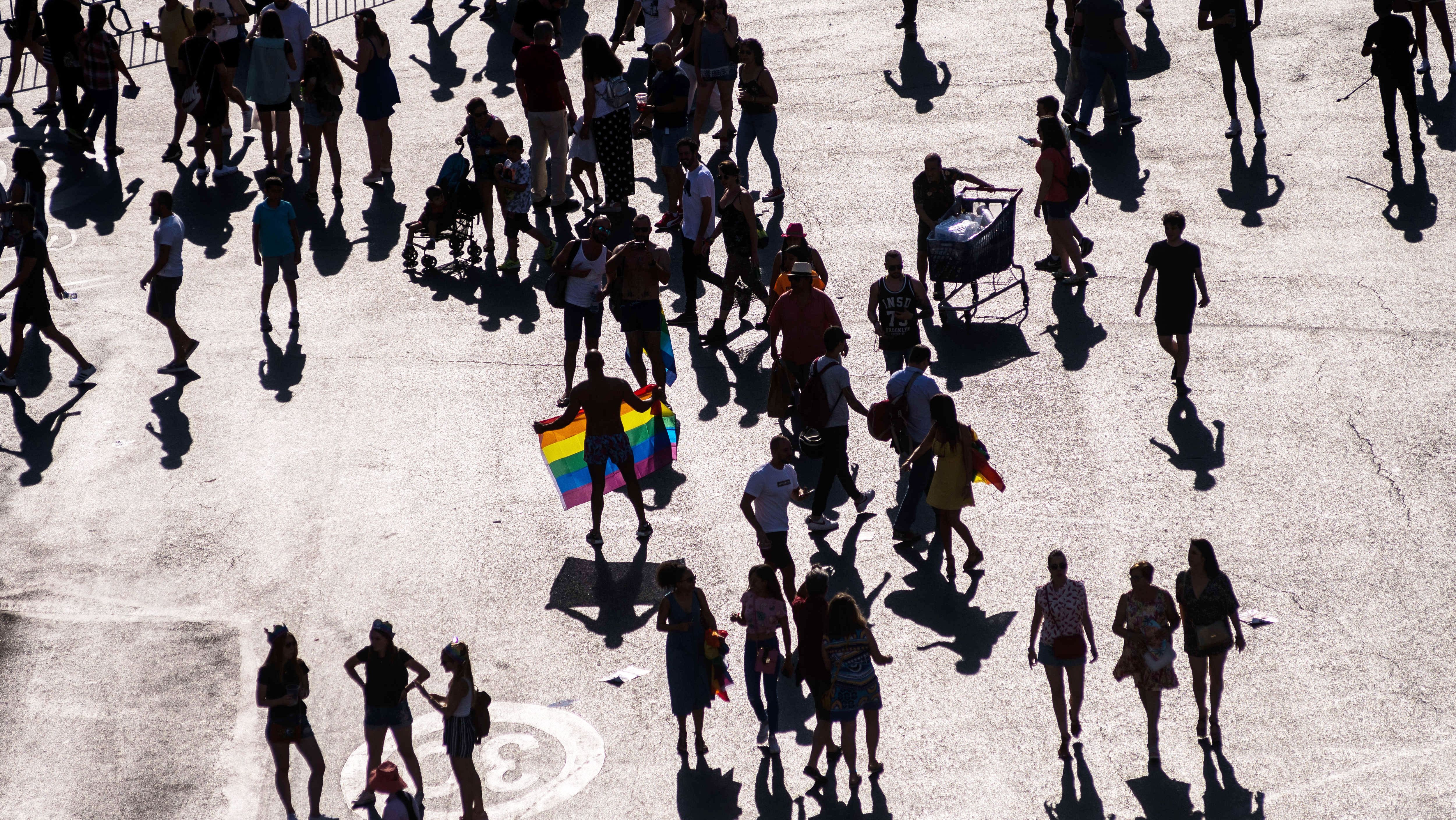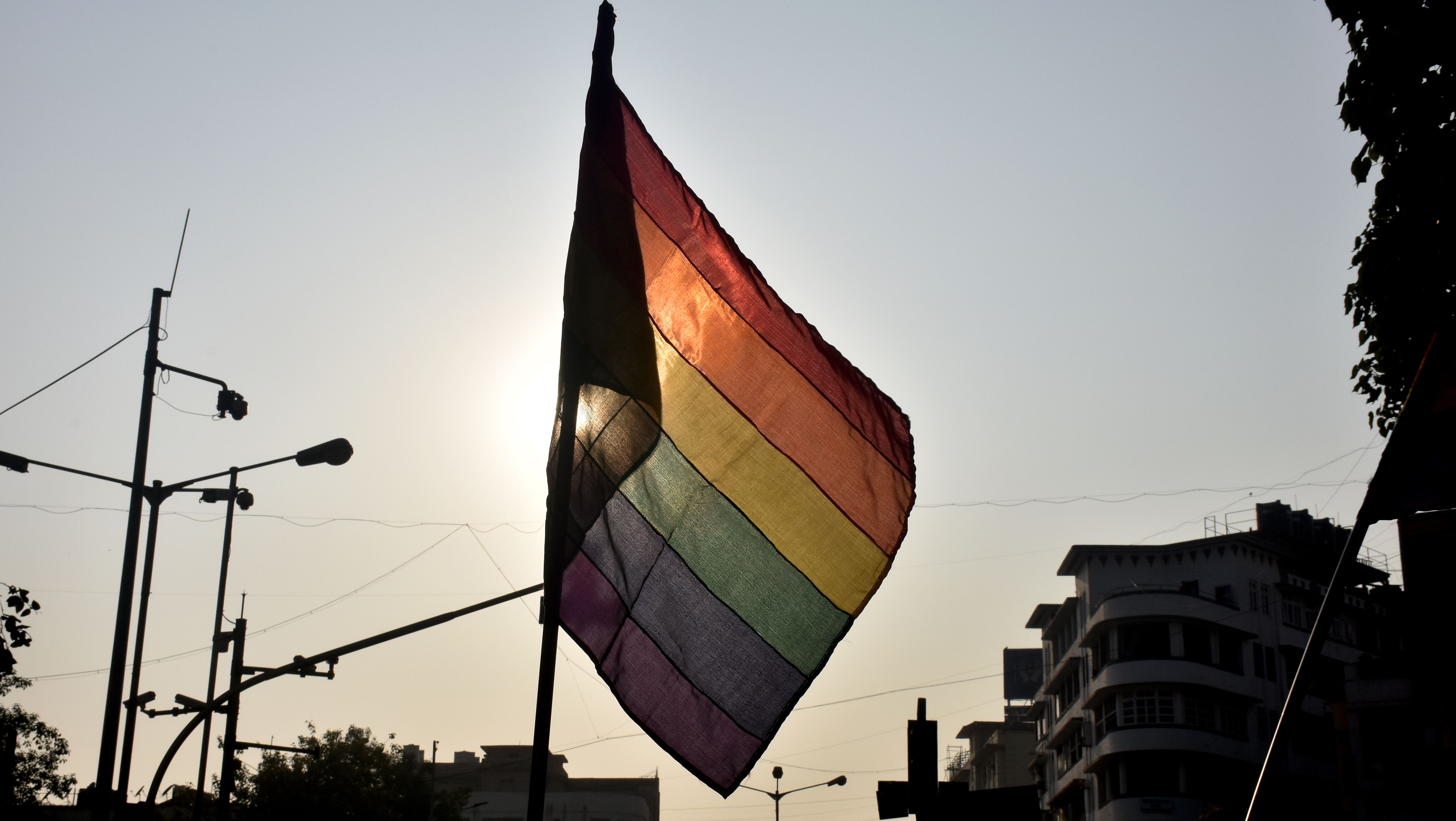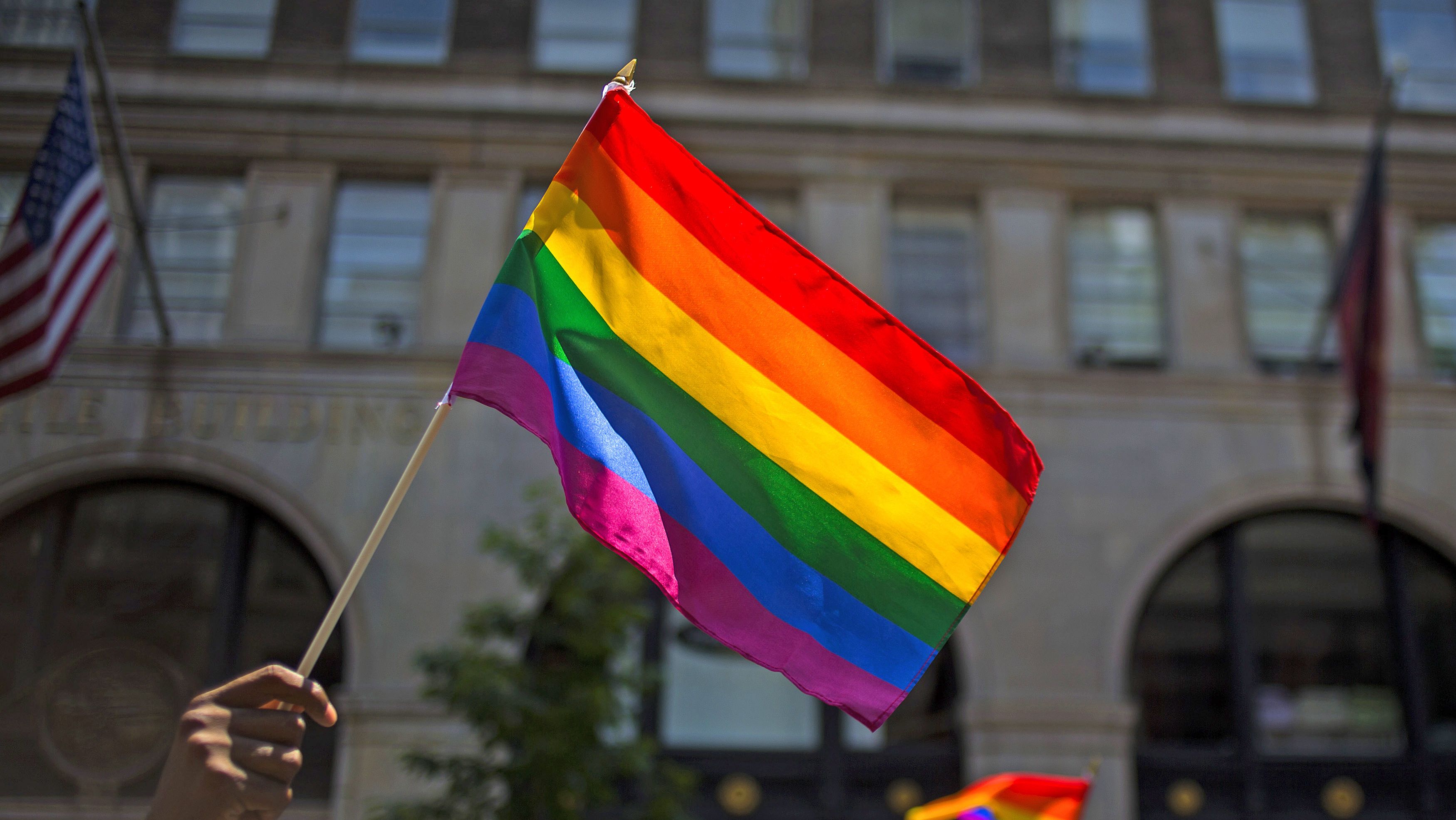Why Do I Feel So Left Out During Pride Month?
The LGBTQ community all but ignores bisexual women like me.

“What are you doing here?” The man who approached me was big. A good six inches taller than I am with burly, tattoo-wrapped arms and a chest wider than my hips strapped with a leather harness over a white ribbed tank top. He was scowling over his beer bottle like I’d moved in on his territory which, in his mind, I had.
“Just waiting for my friends,” I stammered, my face reddening to the shade of my vodka cranberry.
“Do you know where you are?” he asked, eyes narrowing. “This place isn’t for you.”
That was the first time someone called me out in a space set aside for the LGBTQ community, but it was far from the last. More than a decade later, I still don’t feel safe going to gay bars alone. And this World Pride Day, just like every year, I look forward to pride celebrations with apprehension—as a bisexual, femme woman married to a cisgender man, I don’t always feel welcome at LGBTQ events.
I’d be remiss not to recognize that my position comes with a significant degree of privilege. I can “pass” as heterosexual at work and in the community. And unlike transgender or openly gay or lesbian people, my safety isn’t automatically threatened because of my identity. I’m like a queer ninja. Nobody has to know my identity until I explicitly share it.
As a bisexual, femme woman married to a cisgender man, I don’t always feel welcome at LGBTQ events.
At the same time, because I don’t fit into the stereotype of what a queer person looks like, I can’t bring my partner to gay bars without facing side-eye and the odd muttered commentary, and I’m persistently aware of how we present to the world. That’s isolating—and it never feels more so than during Pride month.
While the “B” in LGBTQ has been part of the acronym since it was first coined around 1988, many bisexual people still feel invisible within queer community. According to a report by The Movement Advancement Project, bisexual people experience significant rates of invisibility, societal rejection, violence, discrimination, and poor physical and mental health—often at rates higher than their lesbian and gay peers.
Get exclusive access to fashion and beauty trends, hot-off-the-press celebrity news, and more.

Biphobia or bisexual erasure—the still-pervasive attitude that bisexuality isn’t real or makes a person less LGBTQ than those who identify as gay or lesbian—can have a serious impact on my community’s health. While data on bisexual mental health is scarce compared to research on lesbian or gay people, several studies show that bisexuals report higher rates of anxiety, depression, mental illness, suicidal thoughts, and self-harm, relative to gays and lesbians.
My experience of isolation is not unique. Research has found that bisexuals are marginalized by heterosexual, lesbian, and gay communities, and support provided by the LGBTQ community—systems which are life-saving and life-affirming for many LGBTQ people—might not be as available to bisexual people. Almost two-thirds of bisexual respondents to one survey reported hearing biphobic jokes at work, and almost half of bisexual patients have experienced biphobia from healthcare providers.
Bisexuals report higher rates of anxiety, depression, mental illness, suicidal thoughts, and self-harm.
While I love my partner dearly, there’s a convivality that comes with queer community that can’t be replicated anywhere else. Unfortunately for bisexual people, especially those of us who “look straight,” these spaces can be difficult to access. As evidenced by a 2016 study, biphobia persists in the LGBTQ community, but being partnered with a heterosexual person doesn’t make a bisexual person less queer. My sexuality doesn’t change based on who I love.
And I need queer spaces to express my identity completely: Most of my social circle is heterosexual and many of my family members aren’t aware of my queerness. Biphobia in LGBTQ spaces forces me back into the closet within the very community that’s supposed to be most welcoming. That’s not only isolating for me as an individual; it can be downright destructive to the inclusivity LGBTQ communities are supposed to champion.
As many LGBTQ people can attest, it feels like exhaling to be surrounded by people who understand me. But incidences of biphobia—whether that’s a comment from a fellow bar patron or an ill-considered joke by a colleague—shatter that safety. When I see stories about whether straight people can attend pride and rules for straight couples at pride it makes me wary of how I’ll be perceived at pride events. I worry for my fellow bisexuals and pansexuals, who should feel just as welcome as gays and lesbians. Pride month is a time of celebration and remembrance for the LGBTQ community; an important time to recognize all of its members, regardless of their outward presentation.
This pride month, I want to be able to hold my partner's hand without it being seen as a betrayal of my LGBTQ family. I want to celebrate love in all forms, including mine.
For more stories like this, including celebrity news, beauty and fashion advice, savvy political commentary, and fascinating features, sign up for the Marie Claire newsletter.
RELATED STORY
